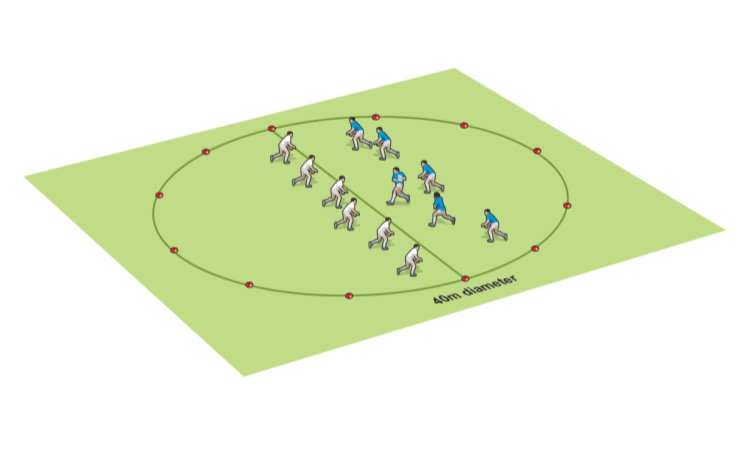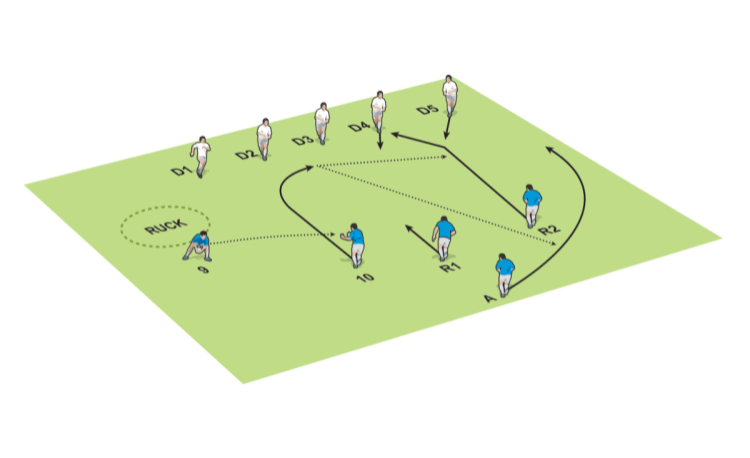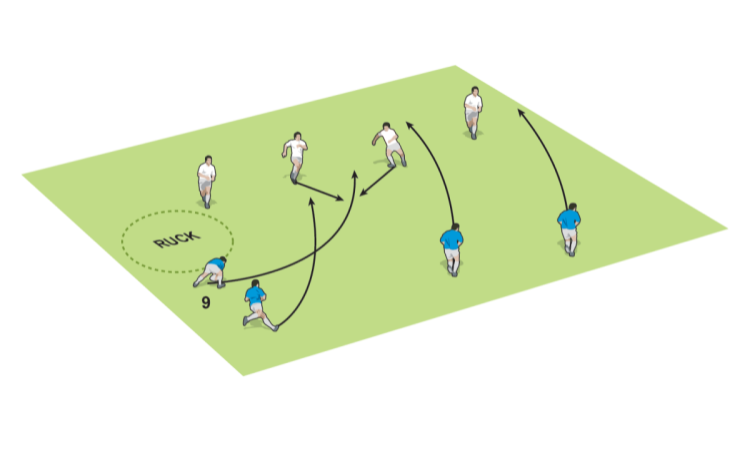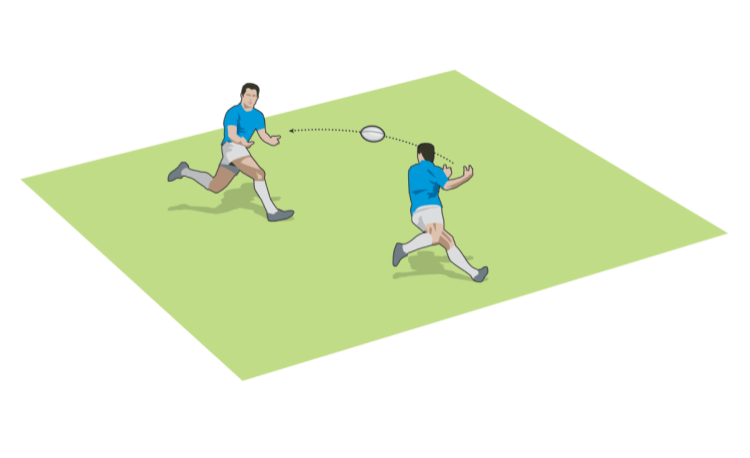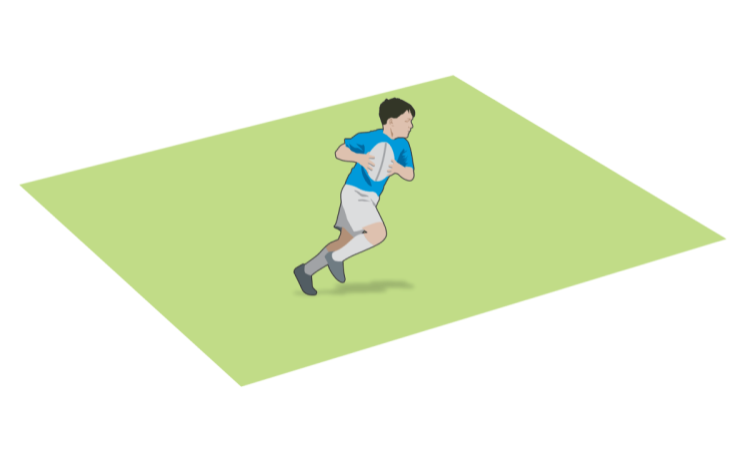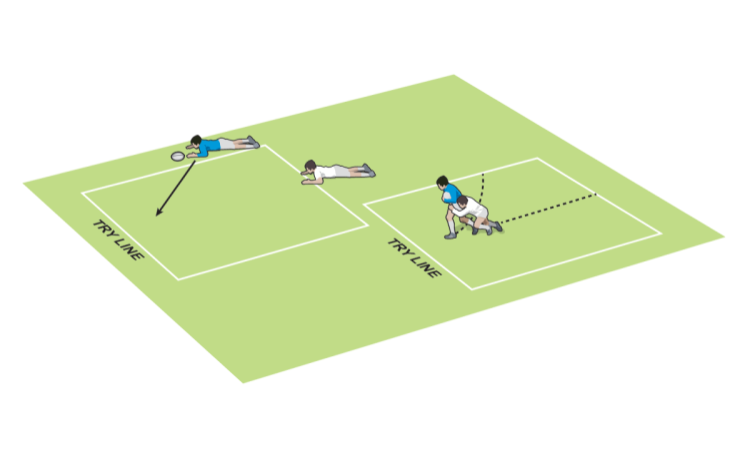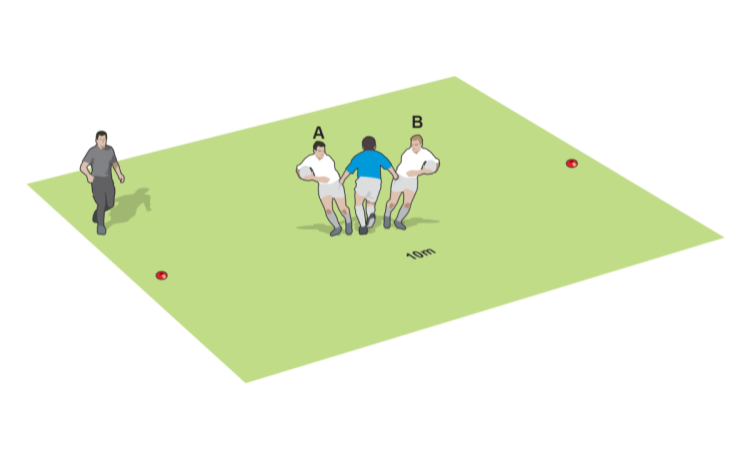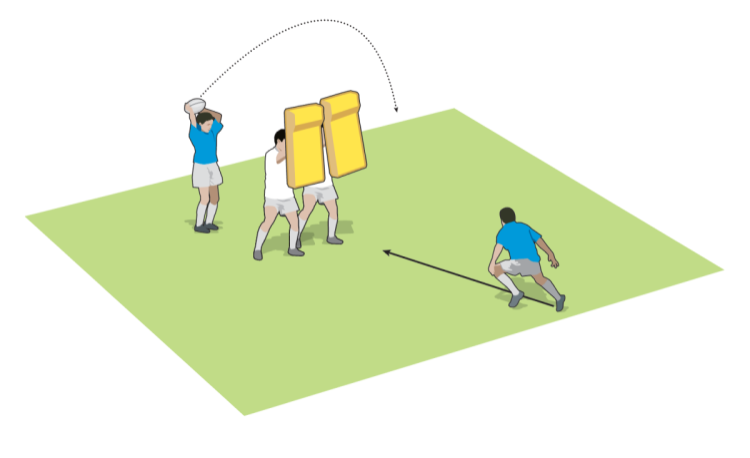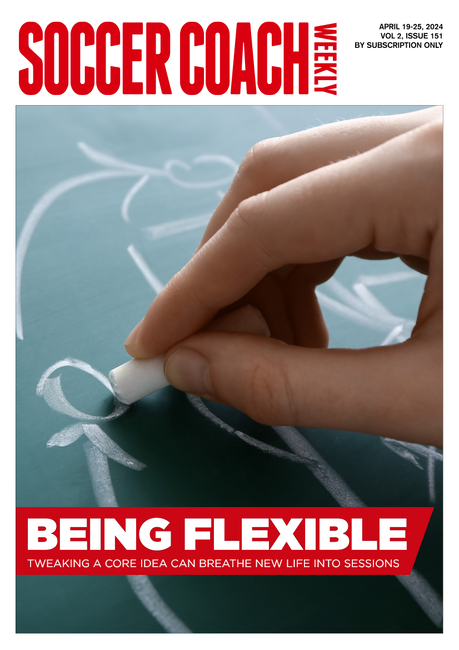You are viewing
1 of your 2 free articles
Pace passes
Passing and Handlingby Eamonn Hogan
Passing at pace is a real skill and a defence splitter. By teaching players how to do this at a young age you are arming them with an effective weapon they will use for the rest of their rugby lives.
A 50x15m channel with a line of cones 10m from either end. Four players wait at one end (picture 1).
You throw the ball to the nearest player and the four players advance.
The ball must be passed three times (handled by everyone) before the first 10m line of cones is reached. The final player sprints to the far set of cones with the other three in support. Once there, the ball is passed to everyone in the end zone as before and a try is scored (picture 2).
Progress by adding a defender to ensure ball carriers run at space – draw the defender and make a scoring pass (picture 3).
Race teams against each other to find a winner. Also race against the clock to find the quickest team.
“Arms across body when passing to a target given by the receiver, or to an area in front of them while running.”
“Tell the ball carrier where you are – call for the ball.”
Gets players catching and passing while under pressure and looking for support from team mates.

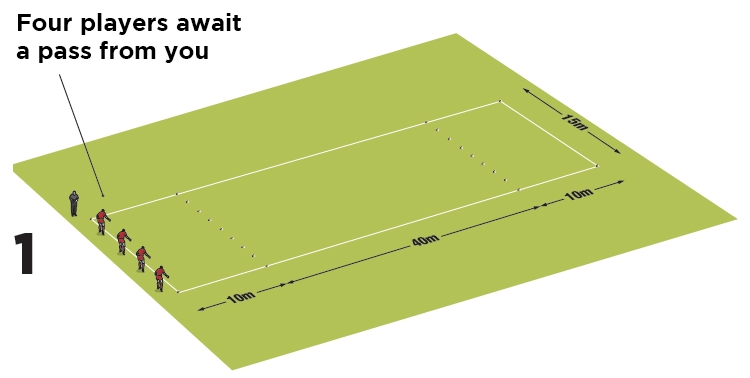
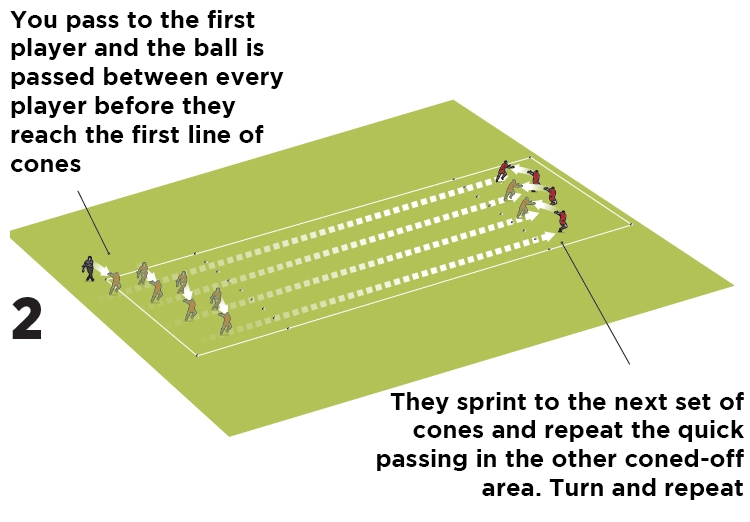
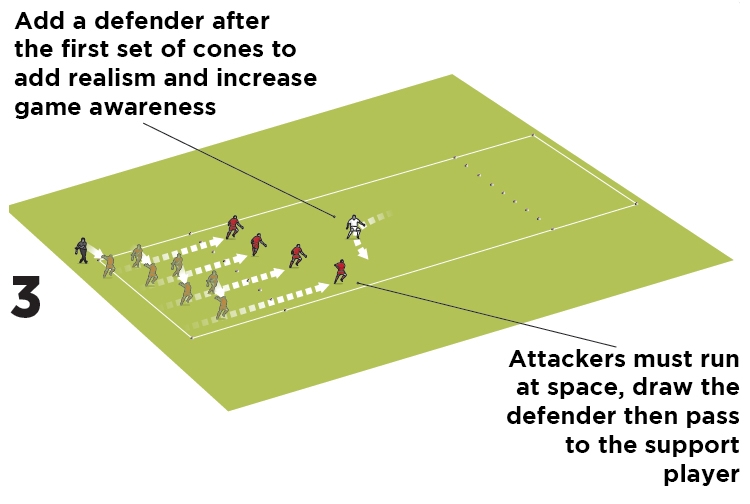
Set-up
A 50x15m channel with a line of cones 10m from either end. Four players wait at one end (picture 1).
The rules
You throw the ball to the nearest player and the four players advance.
The ball must be passed three times (handled by everyone) before the first 10m line of cones is reached. The final player sprints to the far set of cones with the other three in support. Once there, the ball is passed to everyone in the end zone as before and a try is scored (picture 2).
Progress by adding a defender to ensure ball carriers run at space – draw the defender and make a scoring pass (picture 3).
Scoring
Race teams against each other to find a winner. Also race against the clock to find the quickest team.
Tell them
“Arms across body when passing to a target given by the receiver, or to an area in front of them while running.”
“Tell the ball carrier where you are – call for the ball.”
Coaching tips
Gets players catching and passing while under pressure and looking for support from team mates.




Newsletter Sign Up
Coaches Testimonials

Gerald Kearney, Downtown Las Vegas Soccer Club

Paul Butler, Florida, USA

Rick Shields, Springboro, USA

Tony Green, Pierrefonds Titans, Quebec, Canada
Subscribe Today
Be a more effective, more successful rugby coach
In a recent survey 89% of subscribers said Rugby Coach Weekly makes them more confident, 91% said Rugby Coach Weekly makes them a more effective coach and 93% said Rugby Coach Weekly makes them more inspired.
Get Weekly Inspiration
All the latest techniques and approaches
Rugby Coach Weekly offers proven and easy to use rugby drills, coaching sessions, practice plans, small-sided games, warm-ups, training tips and advice.
We've been at the cutting edge of rugby coaching since we launched in 2005, creating resources for the grassroots youth coach, following best practice from around the world and insights from the professional game.
More from us
© 2023 Rugby Coach Weekly
Part of Green Star Media Ltd. Company number: 3008779
We use cookies so we can provide you with the best online experience. By continuing to browse this site you are agreeing to our use of cookies. Click on the banner to find out more.




